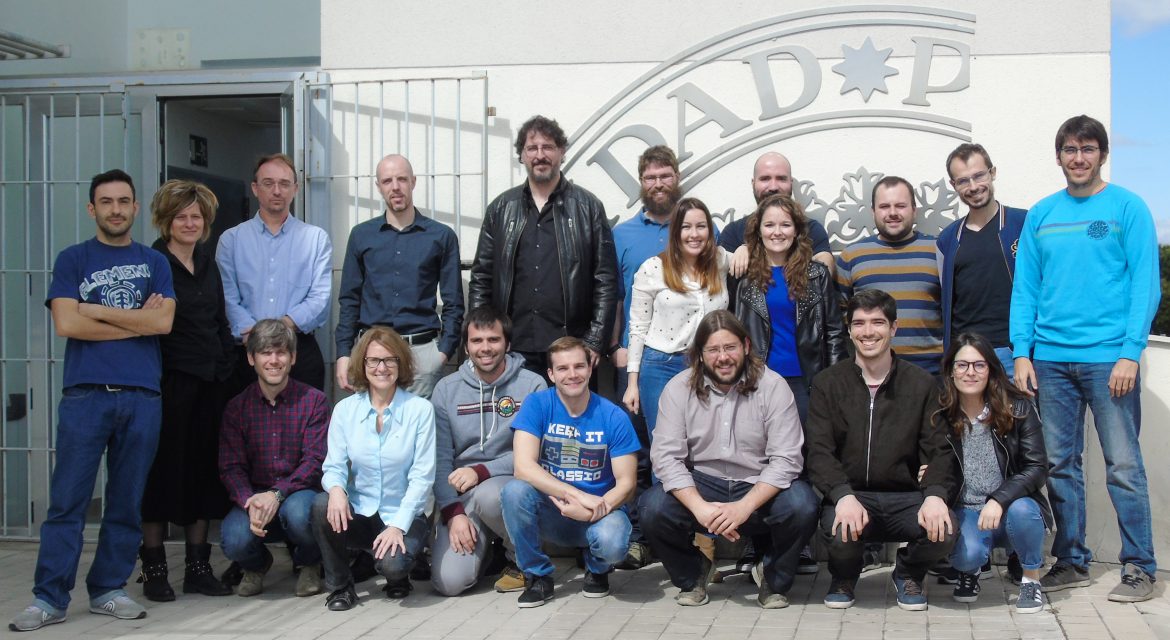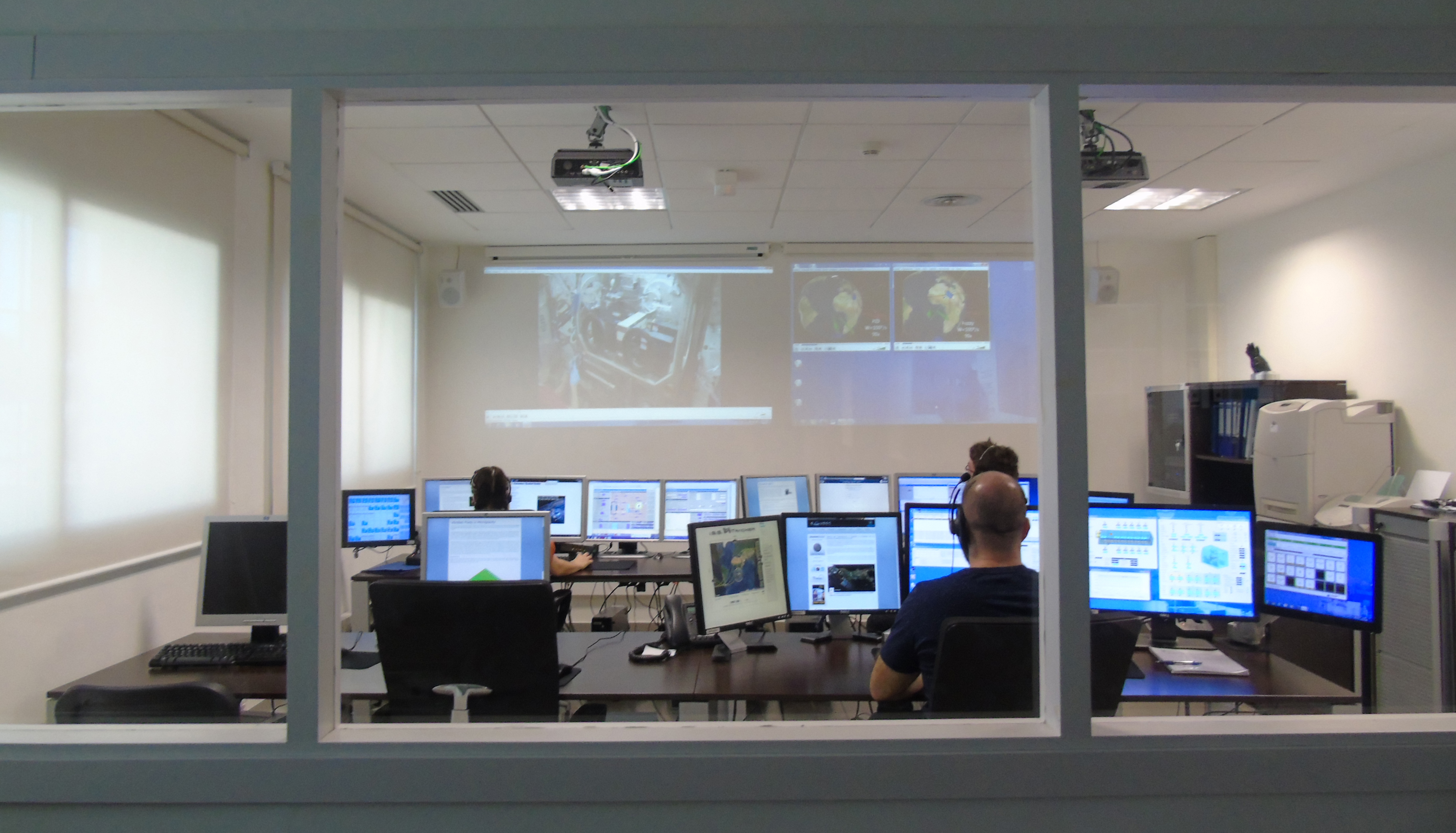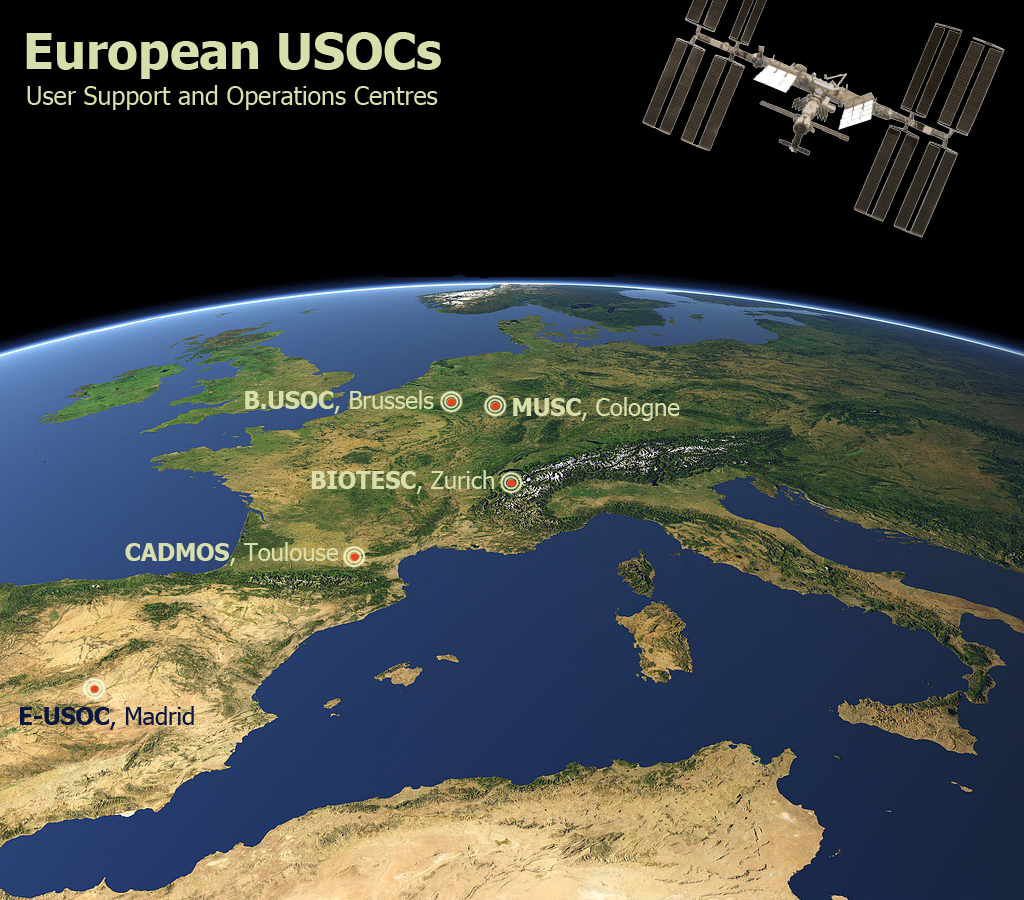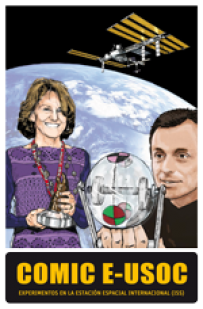About Us
E-USOC (Spanish User Support and Operations Centre) is a centre of Polytechnic University of Madrid (UPM) specialized in Research and Development (R&D) activities in the fields of space science and technology. On behalf of European Space Agency (ESA), the centre offers the necessary assistance for the preparation, execution and post-flight analysis of space experiments to the Spanish scientific community.
E-USOC is the point of contact for the Spanish user teams developing experiments which require microgravity environment, such as the International Space Station (ISS), Space Shuttle missions, Parabolic Flights and so on. It is also the point of contact for European Users carrying out space experiments involving the payloads which E-USOC is responsible for. For instance, experiments concerning the Fluid Science Laboratory (FSL) onboard the International Space Station.
E-USOC also provides information and promotes activities in the field of space sciences and fluid mechanics, giving technical and operation support to researchers and investigation groups which want to carry out experiments in microgravity environments or in any field of research related to space science.

UPM team in which E-USOC is part of
E-USOC is the Spanish point of contact for the utilisation of the Low Gravity Platforms which ESA is sponsor of. These platforms are:
-
Drop Towers. Drop towers and drop tubes are ground based research facilities with wich up to ten seconds of free-fall conditions can be achieved. These are multiprurpose facilities which enable autonomous experiment packages to be submitted to true free-fall conditions.
-
Parabolic Flights. Parabolic flights are aircraft flights conducted for a specific mission profile using specially configured aeroplanes. These aircrafts axecute a series of manoeuvers, called parabolas, each providing up to 20 seconds of reduced gravity, during which scientists are able to perform experiments and obtain data that would otherwise not be possible on Earth.
-
Sounding Rockets. These have been used for scientific research in the late 1950s and were originally implementeted in Meteorological and Upper Atmosphere studies. ESA has been using this type of platform to carry out low gravity experimentation since 1982.
-
Foton Retrievable Capsules. These are unmanned, retrievable capsules, derived from the design of the 1960’s Soviet Vostok manned spacecraft and the Zenit military reconnaissance satellite.
More Information
USOC stands for User Support and Operations Centre and is based in national centres distributed throughout Europe. These centers are responsible for the use and implementation of European payloads onboard the ISS. E-USOC participates in the following tasks:
-
Facility and experiment operations preparation, validation, and execution.
-
Payload (onboard ISS) increment planning and inputs to the overall mission/increment/partner plan.
-
Operations feasibility and science samples bread-boarding with the Scientific Reference Model (SRM), collecting science requirements for experiment and payload upgrades.
-
Scientific experiment preparation and operation validation on SRM/EM (Engineering Model) including validation of payload increment timelines, increment procedures and payload data base.
-
Consolidated planning in coordination with Industry for ground model utilisation (SRM/EM/EGSE) for increment preparation.
-
Provision of science/sample based parts to experiment safety data packages, experiment qualification and validation testing, experiment ground and launch site processing.
-
Update of the Payload Operations Data File (PODF), operations scenarios with associated centres (FSCs, ESCs and UHBs), validation and interface testing of ground segment (in particular with the Columbus Control Centre (Col-CC), FSCs/ESCs/UHBs), experiment ground operations products for launch items.
-
Experiment training requirements and procedures, astronaut training support for experiment operations (including instructors), familiarisation of scientists.
-
Ground rules and constraints, issue of planning and re-planning requests, inputs to short-term-plan, timeline and ground data flows.
-
Real-time operations management and re-planning for payload and experiment execution, payload team co-ordination, flight anomalies reporting, console logs, payload data processing, ground based (parallel) experiments on SRM/EM.
-
Early retrieval and late access activities, configuration control of experiment ground models (e.g. ground experiment containers), SRM configuration control.
The ISS Programme consists of two major components, which are termed “space segment” and “ground segment” respectively. The space segment refers to the on-orbit ISS elements (including the vehicles that service the ISS), and the ground segment includes all of the ground-based facilities that support the activities involved in the Payload Lifecycle. Based on a decision made by the Manned Space Programme Board in 1998, ESA decided to adopt a decentralised infrastructure for the operation of European payloads on board the ISS, based on the concept of User Support and Operations Centres (USOCs).
The network of mission assistance centres for ESA laboratories operating onboard the ISS is based in a set of ground laboratories located in European Institutions with a wide knowledge and prestige in the field of microgravity, biomedicine, etc. These ground laboratories are organized into several categories and are grouped according to the facilities they are goint to take care of.
Facility Responsible Centres (FRC), assisted by their Facility Support Centres (FSC), are coordinated by the Columbus Control Centre (Col-CC) located in Munich, and by the Mission Management Team of the European Space Agency. Associated centres for Columbus payloads are:
- Fluid Science Laboratory (FSL)
- FRC: B.USOC (Brusells, Belgium)
- FSC: E-USOC (Madrid, Spain)
- BIOLAB
- FRC: MUSC (Colonia, Germany)
- FSC: BIOTESC (Zurich, Switzerland)
- European Physiology Module (EPM)
- FRC: CADMOS (Toulouse, France)
- FSC: DAMEC (Copenhaguen, Denmark)
- Material Science Laboratory (MSL)
Low Gradient Furnace (LGF)- FRC: MUSC (Cologne, Germany)
- FRC: CADMOS (Toulouse, France)
Solidification and Quenching Furnace (SQF)
- FRC: CADMOS (Toulouse, France)
- FSC: MUSC (Cologne, Germany)
- European Drawer Rack (EDR)
- FRC: ERASMUS ESTEC (Noordwijk, Holland)
- FSC: DUC (Holland) y B.USOC (Brusells, Belgium)










